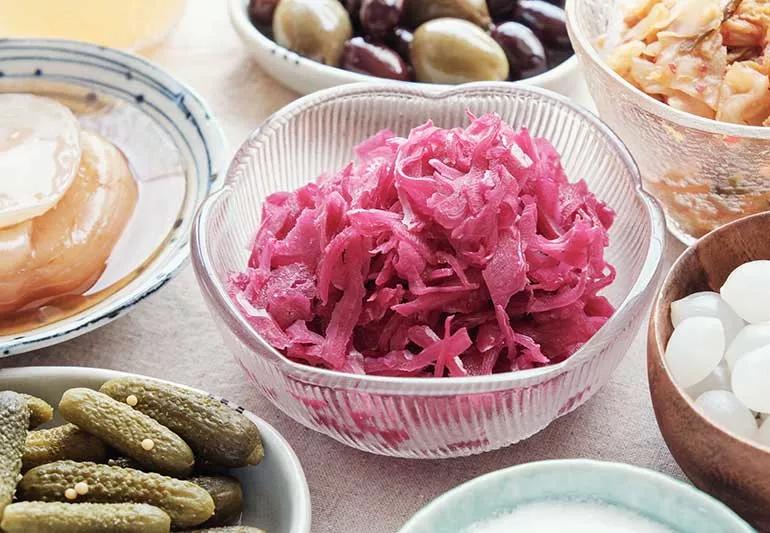Pay close attention to the dose, colony-forming units, storage information and genus

If you’ve come here looking for the best probiotics for you, chances are, you understand just how important and fascinating your gut microbiome can be. With trillions of microorganisms working to break down and digest your food, you want to keep the good bacteria in your gut healthy and thriving. But trusting your gut can only take you so far — and that’s where probiotics come into play.
Advertisement
Cleveland Clinic is a non-profit academic medical center. Advertising on our site helps support our mission. We do not endorse non-Cleveland Clinic products or services. Policy
Just like other popular supplements and dietary fads, probiotics are having their fair share in the limelight, and shelves are being inundated with products that suggest they’re cure-alls for every ailment.
So, how do you know what to buy and which probiotics are the best?
Before you get in over your head, digestive disease researcher and registered dietitian Gail Cresci, PhD, RD, explains what to look for when you’re shopping for the best probiotics.
If you don’t need a probiotics primer, you can skip to the next section. But if you’d like a refresher on exactly what probiotics do, we’ve got a nice little explainer for you.
Microbes, including bacteria, viruses, fungi, archaea and protozoa, comprise the microbiome in your gut (also known as your gastrointestinal tract, or GI) where they’re involved in your immune health, digestion and other functions. Some of these microorganisms may cause disease, while others fight it, and you need a proper balance of good and bad bacteria to promote good health.
An imbalance in your gut microbiome is believed to contribute to a number of health problems — and not just gastrointestinal issues, but immune dysfunction and infections as well. The microbe balance can be disrupted by diet, emotional and physical stress, and use of antibiotics, which destroy the good bacteria along with the bad.
Advertisement
Probiotics are beneficial microbes, typically bacteria similar to those normally found in your gut. They help support the balance of the good bacteria. In doing so, they may provide some relief if you have irritable bowel syndrome (IBS), ulcerative colitis, acute infectious diarrhea and diarrhea associated with antibiotic use or a Clostridioides difficile (C.diff) infection. Some specific probiotics can boost your immunity, fight inflammation and potentially have beneficial effects on cholesterol.
The vast selection of probiotic products on the market contains a wide range of probiotic bacterial strains. To reap the benefits, you need to choose the right one to address your particular issue or concern.
“If someone has disrupted their gut microbial balance, this is where a probiotic can be of benefit,” says Dr. Cresci. “But whether it’s really going to help and whether you’re taking the right one are the big questions out there.”
When searching for the best probiotics to improve the function of your gut microbiome, you’ll want to pay close attention to:
You also may want to consider focusing on probiotic-containing foods instead of supplements.
Here’s why those things matter:
To be a true probiotic, a product must contain live and active bacterial cultures, and it should indicate this on its packaging. You’ll want to pay close attention to colony-forming units (CFU), which tell you the number of bacterial cells you’ll get in each dose.
A general recommendation is to choose probiotic products with at least 1 billion colony-forming units and containing the genus Lactobacillus, Bifidobacterium, Bacillus or Saccharomyces boulardii, some of the most researched probiotics. Even then, you may have to delve deeper, as each genus of bacteria encompasses numerous strains that produce different results.
To find out how many colony-forming units you need to help with a specific condition, you should speak to a doctor before casually starting probiotic supplements to make sure they’re right for you.
Pay close attention to the label and how your probiotics should be stored. Generally, you’d want to keep them refrigerated (and make sure the place you’re buying them from does the same). Heat can kill off the microorganisms in your probiotics if they’re not stored correctly.
Advertisement
You’ll also want to pay close attention to the expiration date, as colony-forming units tend to decline over time rendering them less helpful.
Also, look for a probiotic that is encapsulated with a food source, such as inulin, so it has something to feed off of and remain viable while sitting on the shelf.
Probiotics are sold as supplements, which means they’re not regulated by the U.S. Food and Drug Administration (FDA). This means companies can essentially throw whatever they want into a supplement and call it a probiotic. To keep yourself safe and make sure you’re getting the probiotics you really want, you’ll need to keep a keen eye on the labeling and read up on scientific studies and research reports to determine which probiotics have made positive outcomes on specific conditions.
“I’d probably stay away from store brands and pay a little extra for the name brand that’s been studied,” advises Dr. Cresci. “Ideally, look for a product that’s been tested for whatever you’re looking to address. It might say it helps with IBS, but you wouldn’t take that same product if you were taking antibiotics and trying to prevent antibiotic-associated diarrhea. For this, you would want a probiotic that helps with immunity, not bowel irregularity.”
Advertisement
Some labeling can also be misleading. For example, yogurt is made with two “starter” bacterial cultures — Streptococcus thermophilus and Lactobacillus bulgaricus — but these bacteria are often destroyed by your stomach acid and provide no beneficial probiotic effect, Dr. Cresci explains. Some companies, though, add extra bacteria into the product, so check the labeling and choose products with bacteria added above the starter cultures.
Some people prefer probiotic supplements over foods, but Dr. Cresci notes that probiotic foods are a better choice. In particular, fermented foods — like yogurt, kefir (a yogurt-like beverage), kombucha (fermented black tea), sauerkraut (refrigerated, not shelf-stable), kimchi (made from fermented cabbage) and tempeh and miso (made from fermented soybeans) — provide a nourishing environment in which healthful bacteria thrive and release important byproducts such as short-chain fatty acids.
“They have beneficial effects on your immunity, inflammation and cholesterol,” Dr. Cresci adds. “Go for probiotic foods first.”
The probiotic industry is booming, but the benefits of probiotic products and the quantity of viable bacteria they contain can vary. So, instead of adding bacteria from an outside source, you might be better off consuming prebiotics, like fermentable fiber, which support your own beneficial bacteria. Good dietary sources of prebiotics include dried beans and other legumes, garlic, asparagus, onions, leeks, certain artichokes, green bananas, cold-boiled potatoes and wheat. Prebiotic supplements are available, as well.
Advertisement
“What bacteria like is fermentable fiber,” Dr. Cresci explains. “I don’t know that you need a probiotic if you’re eating a healthy diet, one that is rich in fresh fruits, vegetables and fiber and low in saturated fats, sugar and processed foods. If you want to try a one-size-fits-all to improve your gut health, it’s really about your diet and including prebiotics. What we eat is probably the biggest influence on our gut microbiome.”
Probiotics may cause bloating and gas, as well as changes in your stool patterns — but these are all early indications that the product is working, Dr. Cresci says.
Although probiotics are generally recognized as safe, if you have a compromised or weakened immune system (like if you have chemotherapy treatments, a critical illness or you’ve recently had surgery) you should avoid taking probiotic supplements and probiotic foods.
In some cases, you could develop an allergic reaction, so it’s always important to pay close attention to the label of your probiotic products.
No matter your situation or concern, you should ask your doctor if probiotics are right for you before trying them. They can even help you decide which probiotics are best for you.
Learn more about our editorial process.
Advertisement

This fermented food can feed your gut, help manage hunger and possibly curb colon cancer risk

Yogurt, sauerkraut, kimchi and other fermented foods are a good way to get those beneficial microbes

Probiotics are ‘good’ bacteria that help your gut, while prebiotics are foods that fuel the bacteria

Taking your probiotics in the morning with food is a great strategy — but consistency is key

There’s little evidence that probiotics cause weight loss, but having a healthy gut microbiome may set the stage for it

Maintain a healthy vaginal microbiota with the help of good bacteria

Some diets shun them, but research hasn’t concluded that they’re harmful

If you’re feeling short of breath, sleep can be tough — propping yourself up or sleeping on your side may help

If you fear the unknown or find yourself needing reassurance often, you may identify with this attachment style

If you’re looking to boost your gut health, it’s better to get fiber from whole foods